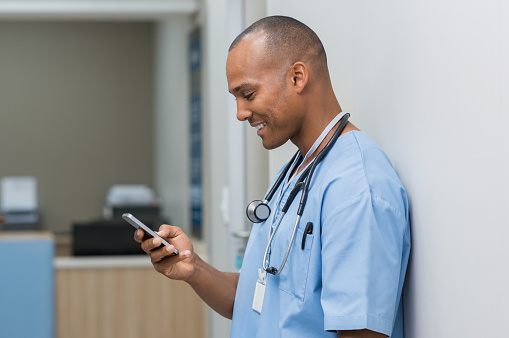Today’s advances in telemedicine are exciting. People can now track their health and fitness with a watch. Blood sugar can be monitored with small hand-held devices. The sensors on a mobile phone can monitor your blood pressure. There are smartphone apps to help people with almost every type of health condition. Though all these technological advancements are allowing people everywhere to take control of their health, there are hidden dangers lurking in the background.

Wearable technology is amazing and it can make people aware of areas where they need to make improvements to their health, but what about all the data these devices collect? Is it secure from hackers? The answer is a resounding no! Most people believe these products are secure, but they aren’t. In fact, they’re highly vulnerable to hackers and cybercriminals. Unfortunately, most apps and medical appliances have very basic internet security built in.
These are just a few of the reasons why guidelines like HIPAA were created. These regulations control the ways in which medical data should be handled. This includes the way healthcare workers gather and process healthcare information.
While mobile devices are very convenient for doctors, nurses, and technicians to use, they do present a significant risk. Along with that, health and fitness apps are helpful and convenient on many levels. Yet, they collect various types of sensitive data about people. If there’s no protection integrated for keeping your medical information safe from cyber threats, then you’re vulnerable. Unfortunately, developers are designing and manufacturing apps to help people manage their health without considering the “security factor.”
Laws like HIPAA do make a difference, but we live in a world where everyone must be diligent about handling data, especially medical information. No one wants their private healthcare info just drifting around the web.
Mobile medical security is an ongoing problem
Doctors, researchers, and their patients are only now realizing how exposed they are. This is one area that has consistently been poorly secured. Everyone loves their mobile phone. You can get so much done on one these days. So it’s only natural that doctors and nurses would use their smartphones for work. But so do medical technicians, x-ray techs, and even the administrative team at a hospital or doctor’s office. This accounts for millions of users working from a mobile device or tablet computer where they view, save, and exchange medical info with others.
Let’s say you have a very high-profile job and just found out that you have cancer. If your employer learns about this in the wrong way, this places your livelihood and reputation in jeopardy. Most people want this type of information to remain private. In fact, HIPAA guidelines ensure that we all have a right to privacy when it comes to our medical information.
It’s easy to see what a huge security issue mobile devices can be when it comes to the security of medical data. What if your doctor leaves his phone in a restaurant, store or public restroom? Maybe an honest person will pick it up and try to return it safely, but probably not. Thousands of people around the world now earn their living by stealing data from others and medical information will fetch a high price.
Instead of worrying about these escalating threats, it’s better to find out what you can do to protect your mobile medical data from intruders and thieves. Believe it or not, most of this information is rudimentary and we should all being doing these things anyway to protect ourselves.
Whether it’s family photos, text messages or important medical documents, most of us want our personal information to stay safe and private.
Below, we share 3 simple steps to safeguard mobile medical data.
Mobile device management
Many companies these days are using mobile device management (MDM) solutions. These are typically employed on an entire fleet of mobile devices. Whether you employ a dozen people or a hundred, you don’t have to worry anymore about lost and stolen phones. MDM can separate personal data from corporate data. It monitors the user’s habits. It will prevent users from visiting certain sites or downloading certain types of content. This is a good choice for many organizations. A “remote wipe” feature can automatically delete the data on a lost device. When dealing with medical records, this is a valuable feature. Though it can be expensive, it’s much cheaper than a damaged reputation and big lawsuit.
Encryption
Encryption is one of simplest methods of protecting data on any device. Whether your device is lost or stolen, if no one can tell what the information says, then it’s safe. File-level is a great way to protect specific files. Disk-level encryption protects everything on the device. It’s usually a more thorough solution and it’s cost-effective. Today’s popular operating systems like Windows 10 and Mac OS X have the ability to provide strong encryption functionalities.
Training
Healthcare workers need training as much as any other profession when it comes to medical data security. Once workers are trained on “best practices”, they’re far more likely to obey the rules and avoid risky moves. Best-practice data security procedures should be second-nature to healthcare workers. They should know what’s at stake and how to protect the data they have control over. For best results, workers should get regular data security classes at least a couple of times per year. Don’t let the “human factor” be the weakest link in your chain.
Conclusion
Though mobile devices offer so much flexibility and convenience, they may always be risky for certain professions and healthcare workers are at the top of the list. Protect your healthcare organization’s IT infrastructure with the best data security solutions available. This will help you avoid the embarrassment of a big data leak that damages your reputation and costs millions to remediate.
